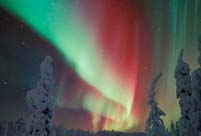JERUSALEM, Dec. 2 -- An excavation by Israeli archaeologists unearthed remains of a lavish meal held near a tomb by prehistoric men to mourn their dead, making the find the oldest funerary meal discovered.
The ongoing excavation at the Carmel Mountains near Haifa in the north of Israel is examining the caves dotting the mountains that were used by a prehistoric tribe 13,000 years ago.
"We know that prehistoric men buried their dead and mourned them, but we didn't know they also held ritualistic meals near their graves," Guy Bar-Oz from Haifa University's Zinman Institute of Archaeology told Xinhua.
"We know they are leftovers of a big meal because the remains are not complete bones, many of them were broken and bone marrow had been extracted from some of them, which lead us to believe they were not remains of complete animals," Bar-Oz said.
Archaeologists have been digging in the caves since 2003 and have so far excavated 29 skeletons that belong to the Natufian people that dwelled in the Levant region between 12,000 and 15,000 years ago. The leading archaeologists, Reuven Yeshurun, Bar-Oz and Dani Nadel are from Haifa University and have worked for a decade on the project alongside researchers from the Weizmann Institute in Israel and colleagues from France, Hungary and the United States. Their study was published in December's edition of the Journal of Anthropological Archaeology.
"Our thesis regarding this find that we unearthed in only one grave so far is that all the tribe would sit together near the tomb because it can accommodate a lot of people and has a great view of the mountains," Bar-Oz said.
The Haifa Natufians roamed Israel at the end of the ice age and ended the nomadic life to settle down. According to researchers, they were also animists, which means that they attributed mystical powers to nature.
To better support their theory regarding the funerary ritual banquet, the team of researchers point out to the marks left on the animal bones found near the grave.
Looking over broken bones with marks on them, Bar-Oz says the Natufians "used flint tools to cut the bones and the meat and when they were doing funerary offers to accompany the dead person on their last trip. They would bury the animals intact."
Their preferred meals were mainly gazelle meat, but they would also eat other animals in their surroundings, such as turtles and hares.
"We found the bones of young male gazelles, hares, turtles and other small mammals near the grave, and we know that prehistoric men eat these kinds of meat, because they were easy to hunt and they could be found in large numbers near the mountains," the researcher said.
The excavation at the Carmel Mountains will continue as part of a bigger project on the Natufians. One of the biggest discoveries made in the caves was a large graveyard that contained the remains of different generations spanning more than 1,000 years.
 Heavy cargo flights taking off
Heavy cargo flights taking off In pictures: PLA's digital equipment
In pictures: PLA's digital equipment  Americans mark Thanksgiving Day with parades
Americans mark Thanksgiving Day with parades Self-made farmer billionaire donates 69 villas at hometown
Self-made farmer billionaire donates 69 villas at hometown Demolition of bizarre rooftop villa in Beijing still in progress
Demolition of bizarre rooftop villa in Beijing still in progress Service seminar for E China train attendants
Service seminar for E China train attendants  Supermodel-turned-designer
Supermodel-turned-designer Cheerleaders light up CBA regular season
Cheerleaders light up CBA regular season  Finland--anytime you want is right time to go: Ambassador
Finland--anytime you want is right time to go: Ambassador Youths in Night club: photo story
Youths in Night club: photo story Models dazzle at Int'l Yacht Model Pageant
Models dazzle at Int'l Yacht Model Pageant  How to apply for a green card in China
How to apply for a green card in China Selected sports photos of the week
Selected sports photos of the week Annual Santa Claus parade held in Canada's Montreal
Annual Santa Claus parade held in Canada's Montreal China's aircraft carrier passes through Taiwan Strait
China's aircraft carrier passes through Taiwan StraitDay|Week|Month